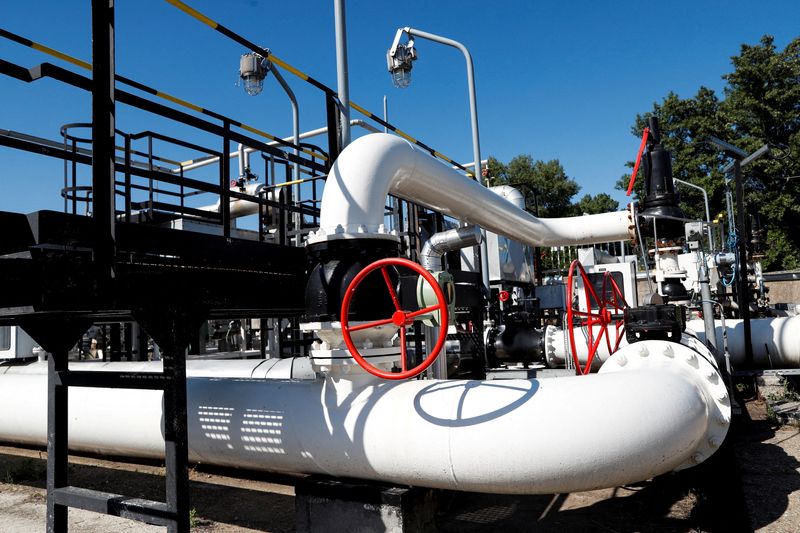By Kate Abnett
BRUSSELS (Reuters) - European Union countries are struggling to agree oil sanctions against Russia over its invasion of Ukraine, nearly four weeks after the European Commission proposed them. Why is it proving so difficult?
THE SANCTIONS PLAN
EU diplomats are attempting to clinch a deal ahead of a two-day EU leaders summit that begins on Monday afternoon.
The starting point for their talks is the European Commission's proposal from May 4 for the sixth and toughest round of EU sanctions against Russia. The proposal included an import ban on all Russian oil - sea-borne and pipeline, crude oil and refined products.
An oil embargo would deprive Moscow of a major revenue stream, which helps finance its military activities in Ukraine. EU countries have paid Russia nearly 30 billion euros ($32.3 billion) for oil since Feb. 24, when it launched what Moscow calls a "special military operation", according to research organisation CREA.
Europe is Russia's largest market for oil exports. Around half of Russia's 4.7 million barrels per day of crude exports go to the EU, according to the International Energy Agency. The EU relied on Russia for 26% of oil imports in 2020, along with around 40% of its gas.
However, reliance on Russian crude varies significantly between EU countries, and so does their ability to replace Russian supplies with alternatives. As a result, the EU is struggling to find an oil sanctions package that all states accept.
WHY THE RESISTANCE?
The EU's 27 member countries must unanimously agree on sanctions. Hungary has been the main opponent. It says halting Russian oil imports would pummel its land-locked economy because it cannot easily get oil from elsewhere.
Similarly land-locked Slovakia and the Czech Republic have also expressed concerns. Like Hungary, they rely on the southern Druzhba pipeline from Russia for oil supplies.
The three countries were therefore offered a longer transition period to cut Russia oil, and the EU this month said it would offer 2 billion euros in funding for oil infrastructure to help the countries do so.
That has so far not convinced Hungary, which says it needs financing to upgrade an oil pipeline from Croatia and switch its refineries to handle non-Russian oil. However, it cannot readily access the proposed EU funding due to Brussels' action against Budapest over alleged undermining of EU democratic principles.
Hungary - whose Prime Minister Viktor Orban has cultivated closer ties with the Kremlin than others in the bloc - received more than half of its crude oil and oil products imports from Russia last year, according to the IEA.
COMPETITION CONCERNS
Having already imposed five rounds of sanctions on Moscow, Brussels is scrambling to avoid a public dispute over the oil sanctions that would undermine EU countries' so-far united front against Russia.
To attempt to clinch a deal, countries were on Monday discussing a compromise that would only ban Russian oil brought to the EU by tankers, with a temporary exemption for pipeline deliveries.
That would also exempt Russia's North Druzhba pipeline, which supplies Poland and Germany, from the embargo.
But some EU diplomats warned that would make the sanctions too weak, and suggested the carve-out for the northern arm of the pipeline was unnecessary, since Germany has said it would be ready to back an oil embargo by the end of the year and Poland has long supported cutting off Russian oil.
The challenge is to find a compromise that does not unfairly penalise some countries. For example, exempting pipelines from the ban could create competition problems in the EU, because pipeline-linked countries would get cheaper Russian oil, while other states would need to switch to more expensive Brent crude.

According to the Bruegel think-tank, three-quarters of Europe's Russian oil is delivered by tankers, while a quarter is delivered by pipeline, so an embargo on sea-borne deliveries would still have a large impact.
($1 = 0.9289 euros)